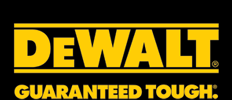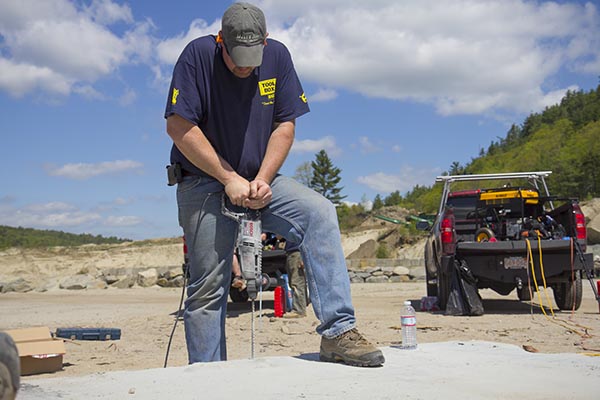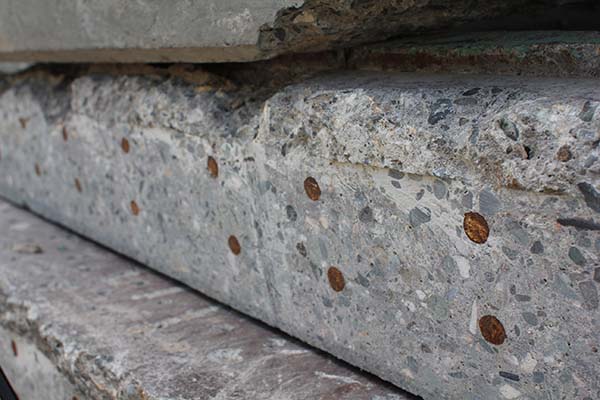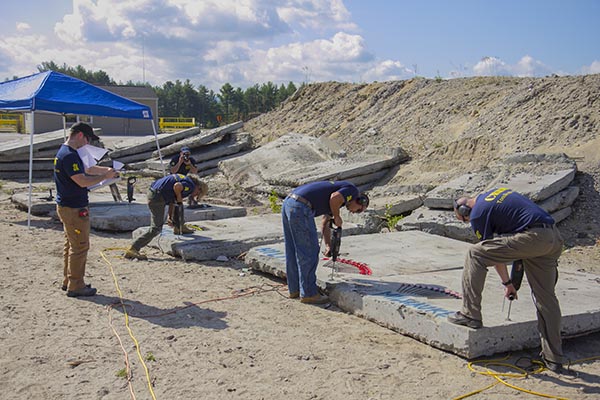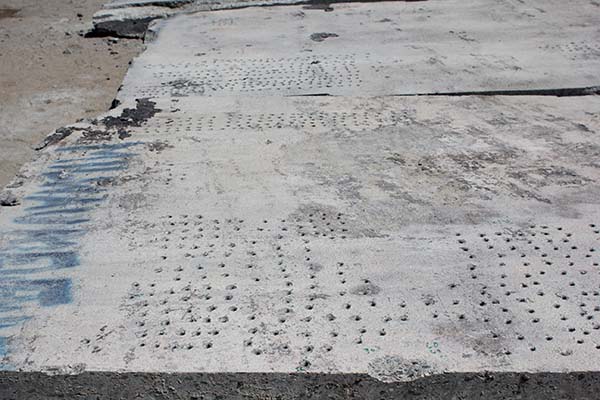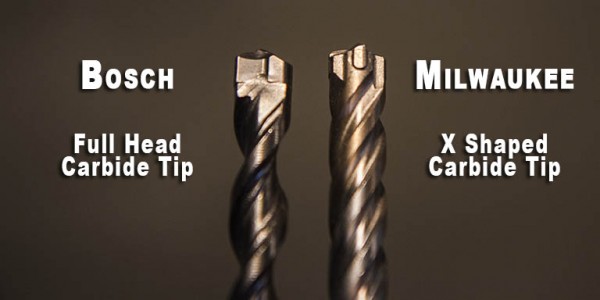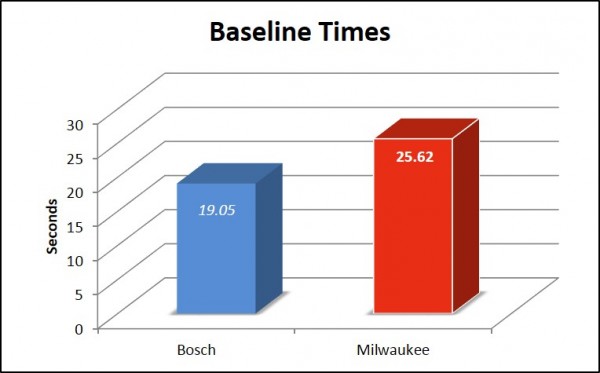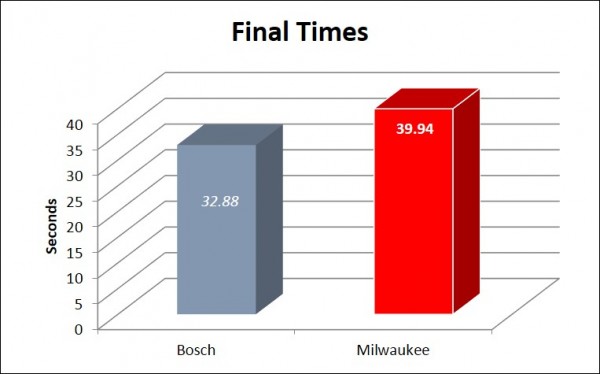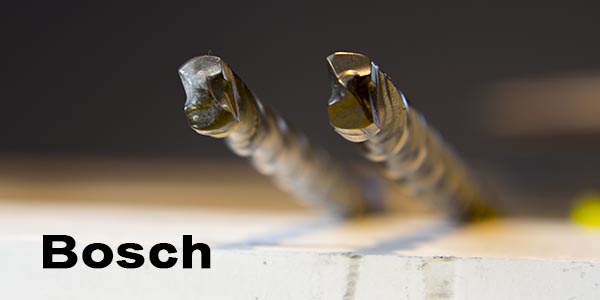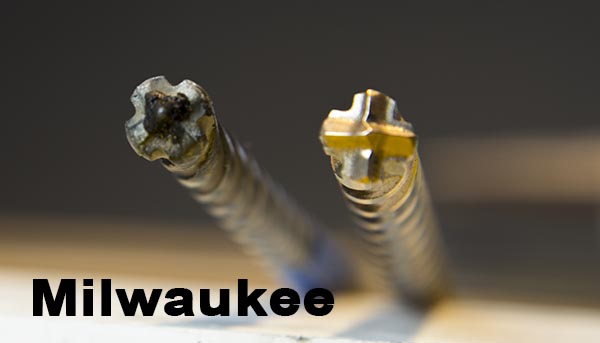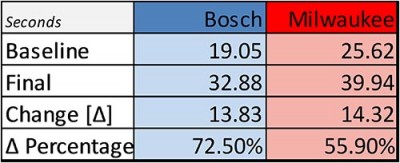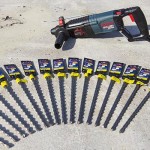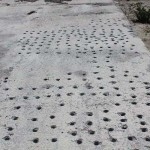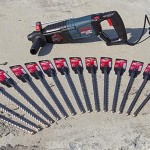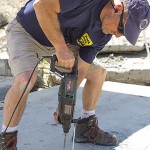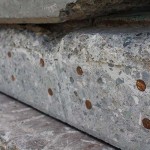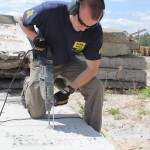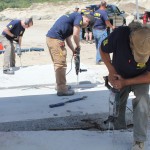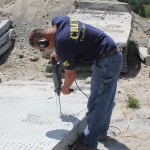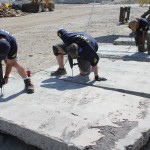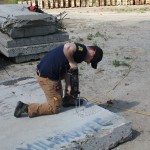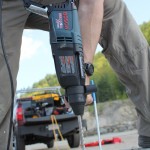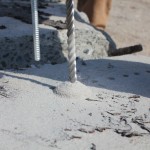SDS-Plus Hammer Drill Bit Comparison – Bosch vs Milwaukee
SDS-Plus Hammer Drill Bit Showdown
It’s hard to get excited about drilling in concrete, let alone a concrete drill bit, but what we KNOW is exciting, is performance. Harvard marketing professor Theodore Levitt put it best when he said “People don’t want to buy a quarter-inch drill. They want a quarter-inch hole.” His simple statement emphasizes that people care about results, not tools, accessories, or features. Well some of us care about tools…
And since we REALLY care about tools, accessories, and features we jumped on the opportunity to evaluate the performance of one of the most commonly used concrete accessories. Last year Bosch asked us to test their 3/8″ SDS-Plus Hammer Drill Bit against a comparable DEWALT bit (read the full article here). This year they asked us to round out the comparison by looking at an additional bit from Milwaukee to test against the same SDS-Plus Bulldog Xtreme Rotary Hammer Bit.
So this year, we again looked at the 3/8” size bits, repeatedly used on job-sites across the country, for drop in and wedge anchors. This is truly a concrete accessory you want to perform well every time, for a long extended time period. We know that it can be a daunting task to choose between cost and productivity when it comes to accessories, so we’ll give you some ground truth on what you get for your money.
The Tool Box Buzz Crew
We had six TBB crew members drilling 10″ Reinforced Concrete Bridge Decks all day to put these bits through their paces. Each member was equipped with brand a new 1″ SDS-Plus BULLDOG Xtreme Rotary Hammer Drill. Using these new drills allowed us to ensure the best possible consistency powering the bit. A big thanks to the Tool Box Buzz Crew for their hard work, pro perspective, and most importantly, drilling skills!
Concrete Substrate For Test Drilling
We revisited the NH quarry again this year, which was the site of our first SDS-Plus drill bit comparison and our 1-9/16” SDS Rotary Hammer Head to Head to evaluate the speed and endurance of these 3/8” bits on a heavy duty substrate; 10” Reinforced Concrete Bridge Decks.
These bridge deck sections were cut from a highway bridge located in Vermont. The concrete decks had a minimum strength of 6,000 psi (likely much higher due to the age of the concrete) and the decks had two mats of reinforcing steel (one in the top, one in the bottom) with #5 and #6 bars in both directions. Needless to say the deck samples represent a heavy duty real world application that many contractors face whether on road projects or commercial building applications.
Concrete Drill Bit Testing Method
To test the performance of these bits we timed a sample of 20, six inch deep holes, removing outliers, to determine a baseline speed (average speed to drill a six inch deep hole). To help minimize variables in operator use, we used the same operator for each sample, for each bit tested.
We then proceeded to operate the drills repeatedly drilling six inch deep holes to simulate heavy duty and regular use. After 315, six inch deep holes were drilled for each bit, we repeated the same timed 20 sample trial. This data was used to calculate the average time to drill a six inch deep hole, which allowed us to compare speeds and determine performance degradation. When all was said and done we drilled over a thousand six inch holes in one day!
Our testing methods are intended to replicate and condense repeated heavy duty use of 3/8” SDS-Plus Hammer Drill bits. Whether you’re calculating costs for a large commercial project or deciding whether you’re willing to pay more for a bit you know you’ll only use a dozen times a year, understanding the performance you’re paying for is priceless. Our testing methods not only give you some insight on what you can expect for each bit over the life of its use, but our research can help you make the decision that is best for you.
Bit Features, Specifications and Pricing
Let’s take a good look at each bit out of the box for a first impression before we review how we evaluated the performance of these bits. Below you’ll find a list of specifications and features for both the Bosch and Milwaukee bits. But from a user’s perspective our biggest take away comparing the bits, was style of cutter and the user’s experience.
The first thing our team noticed when comparing the Bosch Bit to the Milwaukee was the different style cutting heads. The Bosch HCFC2064 has a “Full Head” cutting bit, which is achieved using Diffusion bonding technology, so although you can’t tell that by just looking at the bit the full carbide head definitely stands out. Milwaukee’s 48-20-7354 SDS-Plus M4 has a 4-cutter or “X-Shaped” solid carbide head insert.
The team all agreed that when using new bits the Bosch bit was considerably faster, felt smoother, and left the operators feeling more confident about their progress (drilling holes in concrete is absolutely NO fun). Although, as the bits were worn down from our testing, the bits leveled off as far as discomfort and slow progression during drilling.
Bosch HCFC2064 3/8” SDS-Plus Rotary Hammer Bit Specifications
- SKU: HCFC2064
- Diameter: 3/8″
- Usable Length: 10″
- Overall Length: 12”
Bosch HCFC2064 Features
- Diffusion bonding technology provides stronger carbide bond
- 4X life in all concrete types and concrete with rebar
- Wear mark assures hole diameter tolerance for anchoring applications
- Centric conical tip results in precise hole diameters
Bosch HCFC2064 Pricing
- Home Depot $17.97
- Amazon $13.87
- Grainger $17.54
- Ohio Power Tool $17.29
- Acme Tool $21.99
- Average Price: $17.73
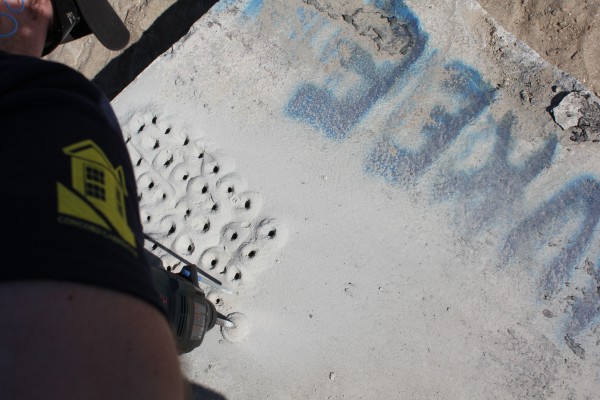 Milwaukee 48-20-7354 3/8 In. x 12 In. SDS-Plus M4 Hammer Drill Bit Specifications
Milwaukee 48-20-7354 3/8 In. x 12 In. SDS-Plus M4 Hammer Drill Bit Specifications
- SKU: 48-20-7354
- Diameter: 3/8″
- Usable Length: 10″
- Overall Length: 12″
Milwaukee 48-20-7354 Features
- Solid Carbide Tip for Up to 3X Life in Rebar
- Drills More Accurate Holes for Anchoring Applications
- Centering Tip for Accurate Hole Placement
- Won’t Lock Up in Rebar
Milwaukee 48-20-7354 Pricing
- Home Depot $29.97
- Amazon $21.51
- Grainger $34.20
- Ace Tool $21.07
- Acme Tool $17.59
- Average Price: $24.87
Baseline SDS-Plus Bit Performance
The graph below compares the average initial time to drill a 6 inch deep hole for each of the bits we tested. To determine this average we used our data from the 20 time trials, but removed outliers that fell well outside of the normal range of times we recorded. This average time for each bit became our “baseline” time used to compare the time to drill a 6 inch hole after drilling over 300 holes.
Performance Degradation
We concluded each bit trial by timing an additional 20, six inch deep holes, correcting for outliers, and calculating an average time to determine performance degradation. Between the baseline and final time trial, our crew members drilled 315 six inch holes. The bits were punished by extremely strong concrete and occasional rebar contact which is a condition these bits meet in the field every day.
Needless to say, we did not take it easy on any of these bits and our results were quite intriguing. So we’ll leave you to make your own conclusions on the data we collected, but of course as professionals we have some opinions on what this means for you as a user or as a business owner.
SDS Bit Testing Conclusion
After drilling over 1,000 holes we feel that Bosch proved to be the better performing bit. The Bosch bit was faster at the onset, and faster after drilling over 300 holes. The Bosch bit did display a greater percentage of performance degradation, based on time, but because the Bosch bit’s performance advantage was so great, 300 holes later, the Bosch remained faster than the Milwaukee bit.
In addition to the noticeable speed advantage of the Bosch bit, it also is significantly cheaper than the Milwaukee bit. At our baseline time test the Bosch bit was more than 6.5 seconds faster than the Milwaukee bit and over $7 cheaper (almost 30% cheaper per bit). And at the end of our test Bosch still beat out the Milwaukee bit and even extended its time lead to being over 7 seconds faster than Milwaukee’s Bit.
At the end of the day Bosch is delivering a high performing bit at a significantly lower price point, a combination any contracting company, big or small, can appreciate! Given the many choices you have these days with tools and accessories, we understand the choice the average user makes is often based on brand loyalty or price, since there isn’t much to go off of.
So with the testing, research, and pro perspective of our team and editors we hope Tool Box Buzz can help provide you with the ground truth on SDS Plus bits to make these choices quick and easy. Because again, it’s hard to get excited about a concrete accessory, but we do the hard work for you, so you can focus on the things that make you and your crew more effective and contribute to your bottom line.
About the author
Disclosure
Product reviews on this site contain our opinion of a product or service. We will always strive for objectivity and transparency in our reviews. Our goal is to provide readers with honest, objective information based on our own experiences. We never have and never will accept payment in exchange for a positive review. Many of the products that we review are provided to us for free by a manufacturer or retailer. In some cases, we also have advertising or affiliate relationships with manufacturers and retailers of products and services we review. For additional information please visit our additional disclosure policies.


